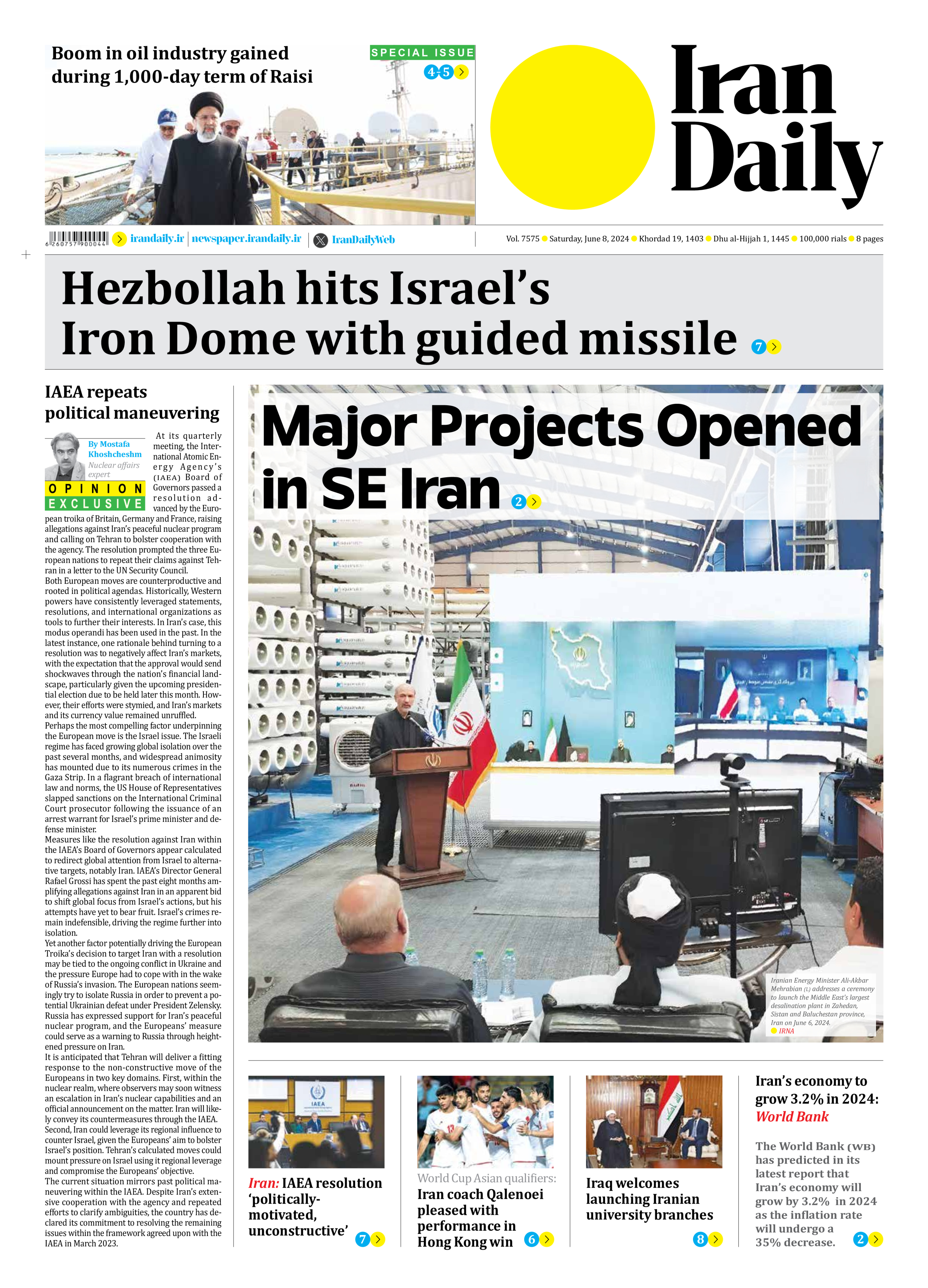
IAEA repeats political maneuvering
By Mostafa Khoshcheshm
Nuclear affairs expert
At its quarterly meeting, the International Atomic Energy Agency’s (IAEA) Board of Governors passed a resolution advanced by the European troika of Britain, Germany and France, raising allegations against Iran’s peaceful nuclear program and calling on Tehran to bolster cooperation with the agency. The resolution prompted the three European nations to repeat their claims against Tehran in a letter to the UN Security Council.
Both European moves are counterproductive and rooted in political agendas. Historically, Western powers have consistently leveraged statements, resolutions, and international organizations as tools to further their interests. In Iran’s case, this modus operandi has been used in the past. In the latest instance, one rationale behind turning to a resolution was to negatively affect Iran’s markets, with the expectation that the approval would send shockwaves through the nation’s financial landscape, particularly given the upcoming presidential election due to be held later this month. However, their efforts were stymied, and Iran’s markets and its currency value remained unruffled.
Perhaps the most compelling factor underpinning the European move is the Israel issue. The Israeli regime has faced growing global isolation over the past several months, and widespread animosity has mounted due to its numerous crimes in the Gaza Strip. In a flagrant breach of international law and norms, the US House of Representatives slapped sanctions on the International Criminal Court prosecutor following the issuance of an arrest warrant for Israel’s prime minister and defense minister.
Measures like the resolution against Iran within the IAEA’s Board of Governors appear calculated to redirect global attention from Israel to alternative targets, notably Iran. IAEA’s Director General Rafael Grossi has spent the past eight months amplifying allegations against Iran in an apparent bid to shift global focus from Israel’s actions, but his attempts have yet to bear fruit. Israel’s crimes remain indefensible, driving the regime further into isolation.
Yet another factor potentially driving the European Troika’s decision to target Iran with a resolution may be tied to the ongoing conflict in Ukraine and the pressure Europe had to cope with in the wake of Russia’s invasion. The European nations seemingly try to isolate Russia in order to prevent a potential Ukrainian defeat under President Zelensky.
Russia has expressed support for Iran’s peaceful nuclear program, and the Europeans’ measure could serve as a warning to Russia through heightened pressure on Iran.
It is anticipated that Tehran will deliver a fitting response to the non-constructive move of the Europeans in two key domains. First, within the nuclear realm, where observers may soon witness an escalation in Iran’s nuclear capabilities and an official announcement on the matter. Iran will likely convey its countermeasures through the IAEA.
Second, Iran could leverage its regional influence to counter Israel, given the Europeans’ aim to bolster Israel’s position. Tehran’s calculated moves could mount pressure on Israel using it regional leverage and compromise the Europeans’ objective.
The current situation mirrors past political maneuvering within the IAEA. Despite Iran’s extensive cooperation with the agency and repeated efforts to clarify ambiguities, the country has declared its commitment to resolving the remaining issues within the framework agreed upon with the IAEA in March 2023.







